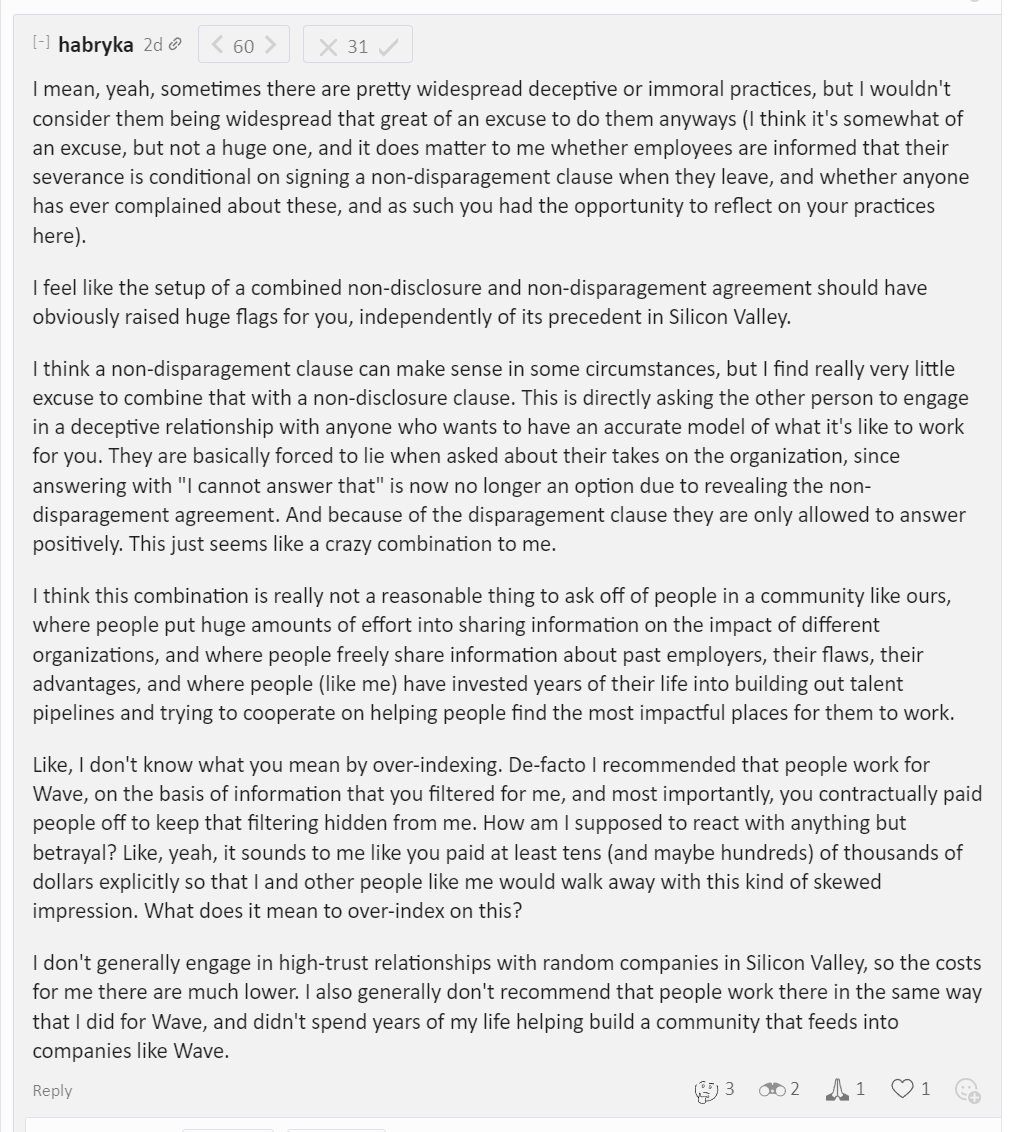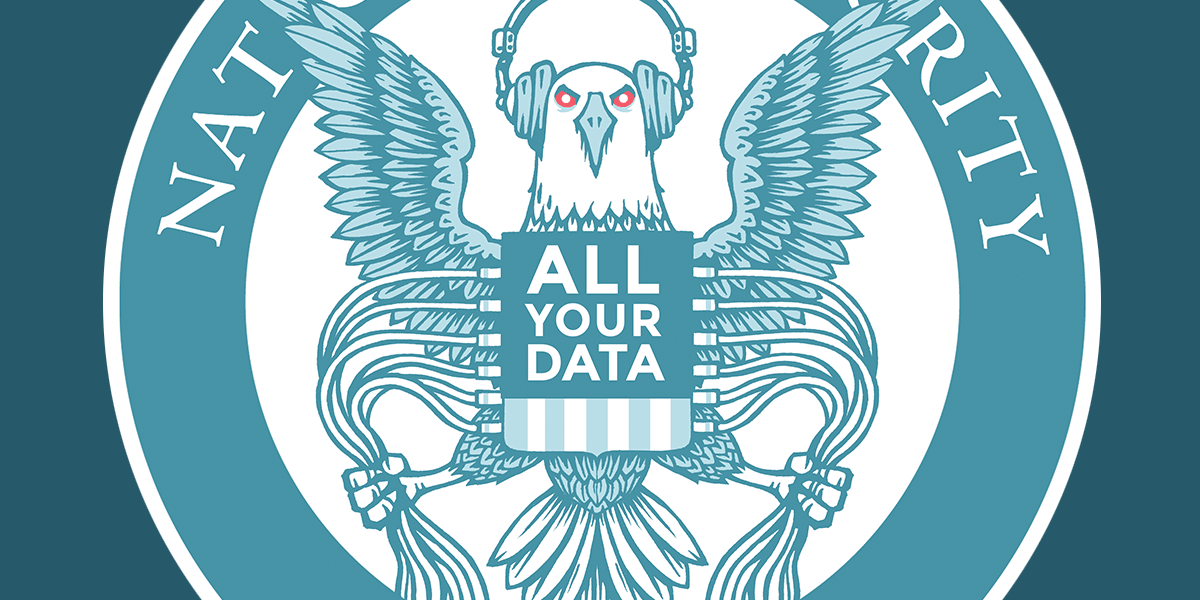Many companies and individuals have used "Warrant canaries" where they periodically state "I have not been NDAed/gag ordered as of <date>", and if they do get NDAed/gag ordered then they stop posting that message, thereby implicitly communicating its existence. To my knowledge, nobody has interpreted these NDAs or gag orders as requiring one to lie and continue to post the message falsely.
https://en.wikipedia.org/wiki/Warrant_canary
A warrant canary is a method by which a communications service provider aims to implicitly inform its users that the provider has been served with a government subpoena despite legal prohibitions on revealing the existence of the subpoena. The warrant canary typically informs users that there has not been a court-issued subpoena as of a particular date. If the canary is not updated for the period specified by the host or if the warning is removed, users might assume the host has been served with such a subpoena. The intention is for a provider passively to warn users of the existence of a subpoena, albeit violating the spirit of a court order not to do so, while not violating the letter of the order.
The Wikipedia has info about case law in different countries. Australia has outlawed warrant canaries - you cannot reveal the non-existence of the order. That's different from requiring you to lie, it requires you not to post the warrant canary in the first place. In the US some rulings say the "Free Speech Clause prohibits compelling someone to speak against one's wishes". But others say that warrant canaries shouldn't work:
every lawyer I've spoken to has indicated that having a 'canary' you remove or choose not to update would likely have the same legal consequences as simply posting something that explicitly says you've received something."
https://www.eff.org/deeplinks/2014/04/warrant-canary-faq
Have courts upheld compelled false speech?
No, and the cases on compelled speech have tended to rely on truth as a minimum requirement.
@CodeandSolder You didn't respond to my previous comment. "You cannot tell others about the non-disparagement clause" still doesn't mean signees are required to lie. That is the point I was making from the beginning.
https://manifold.markets/CodeandSolder/did-waves-severancerelated-confiden#P0GWZnjUa4xPpGb1bJJk
@jack sorry, didn't see it, IMO it would still require lying in some situations, for example if asked directly about having signed such an agreement with a history of responding to such questions when not prohibited.
@CodeandSolder Well, yeah, that was your opinion that I was disagreeing with in the screenshot in the market :)
@jack I hope we get some more concrete information at some point, I don't think we can reach a useful agreement with what we have
Also: lol, Nonlinear is still writing their ~~manifesto~~ response
That's fine. I just want to be clear that "Text being made available and unambiguously stating that reveling the existence of the non-disparagement agreement by revealing inability to answer is not allowed" should not be sufficient to resolve YES. It should only resolve YES if lying is required, as that is what our fundamental point of disagreement was that led to the creation of this market.
@jack there exist situations in which the only way to fulfill that obligation is to lie, which parties being in the EA sphere would be aware of, thus it is an obligation to lie, regardless of the legal enforceability
@jack as I previously stated I do not believe the legal aspect to have any bearing here, as distilled here: https://manifold.markets/CodeandSolder/how-should-a-market-about-a-nonenfo
as I previously stated I do not believe the legal aspect to have any bearing here, as distilled here: https://manifold.markets/CodeandSolder/how-should-a-market-about-a-nonenfo
There was already discussion about that in the discord. As I recall, people thought that if the contract said "you must lie" then this would resolve YES. But if the contract said "you must not reveal this info or that info" and one might or might not infer the requirement to lie, that would resolve based on how people decided it should be inferred (the courts being the most obvious source for the decision).
To put it another way: you read the NDA + non-disparagement as requiring you to lie in the hypothetical situation you described. I read it as not requiring me to lie. Which of us is right? I don't know, that's the question!
FWIW I feel like this market is no longer the best way to resolve the question we actually started talking about, I've sold my shares so I don't (personally) care about the market resolution, but I remain (moderately) confident that there is no obligation to lie in this scenario.
@jack in my opinion (and I believe in most cases in contract law) what matters is what the sides intended the agreement to mean and due to being in the EA sphere it seems more probable they would apply logical meaning rather than average person legal interpretation.
In any case I don't see any harm in waiting with further discussion for more information as I feel we are repeating previously stated points
@CodeandSolder People were saying it was highly likely standard contractual language, not specific to the company and not specific to EA sphere.
@jack it was still (hopefully) read and interpreted by the sides, who by signing agreed to fulfill the obligation as they understood it
@CodeandSolder Ok, maybe we can make a poll on this. Rough draft:
Suppose you sign a contract with the terms:
(Non-disparagement) You agree not to make any defamatory or disparaging statements concerning the Company https://contracts.justia.com/contract-clauses/non-disparagement/
(Non-disclosure) You agree that "confidential information" for this agreement is defined to include the existence of this non-disclosure and non-disparagement agreement, and you agree to hold such confidential information in confidence, and not to disclose it to others without prior consent. https://www.lawinsider.com/clause/non-disclosure
Question 1: Somebody asks you "Did Company make you sign a NDA?" In the past, you responded yes or no freely when you were able to. Are you required to lie and answer "no"? Or can you respond "I'm not going to answer that."?
Question 2: Somebody asks you "Do you think Company is good or bad?" Suppose you honestly believe Company is bad. Are you required to lie and answer "I think Company is good"? Or can you respond "I'm not going to answer that"?
@jack I do not feel like trying ot agree on terms of such a poll and then trying to agree on mapping it on the actual terms should we get them has any advantages as opposed to waiting for the terms and conducting the poll on them should it be unclear
@CodeandSolder I'm more interested in the hypothetical question, not in the specifics of this company. Like I said above, I'm not invested in this market anymore, I'm interested in the underlying question. So I don't really care what the specific terms were.
@CodeandSolder I don't think that's at all related to my take, which is not about a shared misunderstanding.
@jack if both sides believed the agreement to work as information theory would indicate as opposed to the legal interpretation I think this maps 1:1, no?
@CodeandSolder I really don't think so. For example, if we mutually agree to a contract to do something illegal, that contract is invalid. There is a legal argument that you can't compel false speech, and if that is true then it would presumably follow that a contract compelling false speech is not valid.
Anyway, see my warrant canary post above - I think that is much clearer because the thing we are talking about is actually happening in practice, and it is a live issue that hasn't been settled.
@jack and again, I believe what matters is what the sides thought they were.agreeing to, regardless of further external interpretation
The question was not if the agreement was valid but if it existed.
@CodeandSolder I will reiterate that I am not arguing about this market, just about the discussion we were having. And my argument, from the beginning, was about the actual consequences of the agreement, not what anyone thought they were agreeing to. (However, I also very much doubt that they thought they were agreeing to what you think, because they probably didn't think too hard about it, since it was probably a standard contractual term.)


